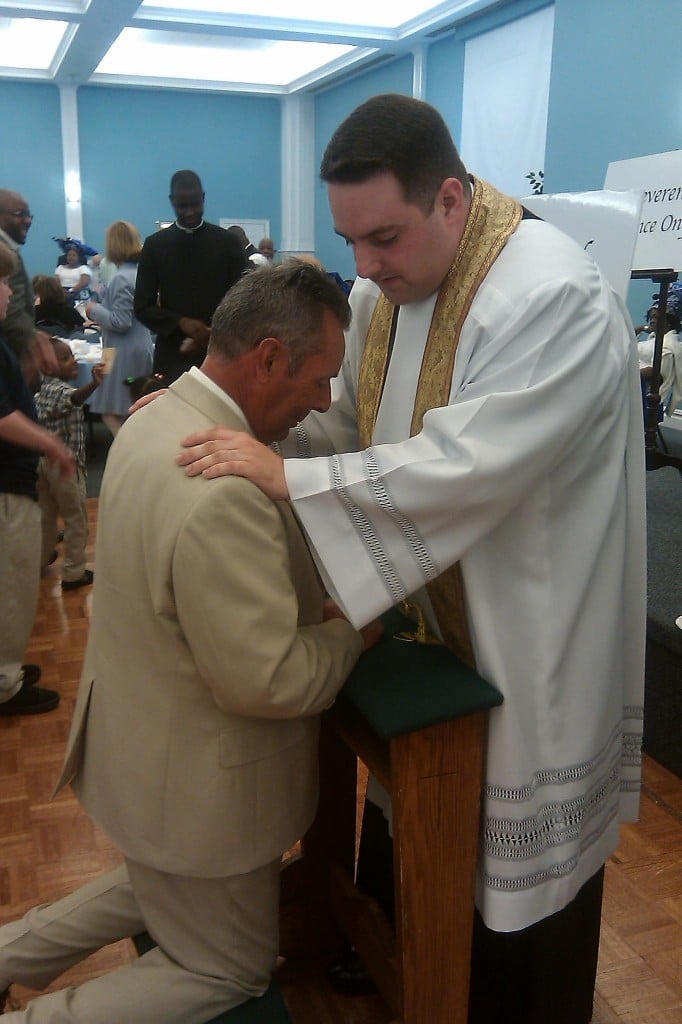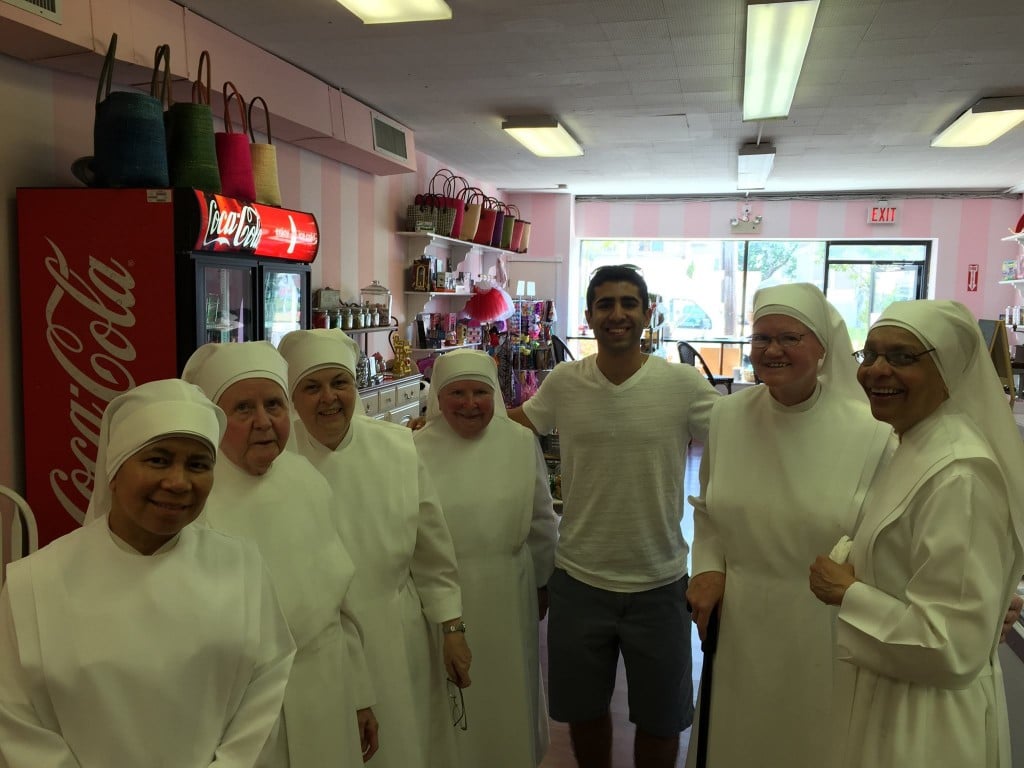Fr. Dan Horan, for whom I have tremendous respect, has written a new article for America magazine titled “Lead us not into clericalism.” It’s well written and I agree with most of it. Pope Francis himself, as Fr. Dan points out, has condemned clericalism. I do, too. There is no place in the Church for a priest or bishop or any cleric for that matter to think of himself as better or above the people that he serves.
Fr. Dan starts his article by pointing to the distinction that certain people have made between him and other young priests:
Next month I turn 30. While that might seem like an old age to me as I approach the milestone, most people are quick to remind me of how young a friar and priest I still am. That statement of fact is often, but not always, accompanied by some well-meaning remark by a parishioner after Mass or an audience member after a talk suggesting that I’m not like other “young priests” they know.
What generally follows that sort of comment is an expression of concern about the perceived unapproachable or pretentious character of so many of the newly ordained. They appear to be more concerned about titles, clerical attire, fancy vestments, distance between themselves and their parishioners, and they focus more on what makes them distinctive than on their vocation to wash the feet of others (Jn 13:14–17), to lead with humility and to show the compassionate face of God to all.
What concerns people, in other words, is clericalism.
I’m a young priest. And I’d like to respond to the comments that Fr. Dan has heard.
First, I find it important to be called Father Duffy (as an aside: I go by my last name because I have been called “Duffy” since the 4th grade. The only people that call me “Michael” are my family). I also think vestments and the liturgy ought to be beautiful. I don’t think that makes me clerical in the least. The title “Father” is, I hope, a title of affection, not of authority. I wear my cassock almost daily in my parish. It helps to remind me of what I’m called to and it helps the people of the parish know to whom I belong. That doesn’t create a separation between me and the parishioners of the parish. I wear my collar when I go to the bank and when I go food shopping. I have gotten into many conversations this way with people that I wouldn’t have otherwise – simply because I dressed as a priest. Even Pope Francis, when he was Cardinal Bergoglio, riding the buses and enjoying a matte with the people of the nabe, was wearing his collar. Jesuits will tell you that truth IS humility and Bergoglio, in his collar was saying, “this is who I am, a Catholic priest, very much here and one of you, but a visible reminder that God is always with us all.”
The collar makes me stand out. And thats the point. I stand out so that people will know they can approach me, that I am a Catholic Priest. I don’t wear it to get a good seat in a restaurant, or a free dinner. Those things don’t happen any more. The witness value of the collar is inestimable. All the young priests I know wear the collar proudly. Again, not for a gain, but precisely to be of service to those we encounter. I know we are all on a journey, no one over the other. But we are each called to different vocations, with different responsibilities. We are all equal—but we are not the same.
I think many young priests are attracted to these things because they speak of the transcendent. The beautiful vestments point to the beauty of God, not of me. I blogged about that not too long ago:
I remember getting ready for my first Mass and thinking about what vestment I would wear. In the end I decided on one that was gold with an appliqué of a crowned “M” in honor of the Blessed Mother. I do admit, the vestment is ‘loud.’ But it is also stunningly beautiful. I didn’t wear it to make myself look better, but rather to direct our attention to the beauty of the liturgy and of God Himself. The chasuble I wore for my first Mass was a gift from my Mother and Step-Father. I’ll always have it. And when I do wear it I’m reminded just what Leah wrote of… That I’m entering into something sacred, something special, something other worldly.
Just because I am concerned about titles and vestiture doesn’t mean that I care about those things more than I care about the people of this parish. Every time I hear confessions, I am moved at just how holy people are. I am struck by how much holier they are than me! It’s an incredibly humbling experience.
In an article about the book On Heaven and Earth, John Allen writes:
The pope evinces little preoccupation for externals: “The problem is not whether you wear a cassock, but rather if you roll up its sleeves when you have to work for the good of others,” he says, quoting another priest he respects.
Finally, Francis rejects clericalism, which he calls a “distortion of religion.”
“When a priest leads a diocese or a parish, he has to listen to his community, to make mature decisions and lead the community accordingly,” he says. “In contrast, when the priest imposes himself, when in some way he says, ‘I am the boss here,’ he falls into clericalism.”
The problem is not with the externals. Externals matter. Signs and symbols mean something; they speak to us. The greater issue is, of course, the internals. How do we priests see ourselves in relation to the people? Often, I speak of “my” parish, or “my” people. I don’t use those words out of a possessive meaning, but rather out of affection. I am charged by the bishop with the pastoral care of the people of this particular parish. They don’t belong to me in any way. I know I’m not the boss. Even if I become a pastor, I still won’t be the boss. God is the boss. The Church and all of us who are a part of it belong to Him.
I agree with the rest of what Fr. Dan writes in his article and with what Pope Francis has been saying. Make sure to go read Fr. Dan’s article. It really is good. But let’s not dismiss the young clergy all together. We are young. We have some learning to do. But our hearts belong to the Lord.
We’ve dedicated our lives to the Church, not for our benefit, but because we want to serve Christ and His Bride, the Church.











